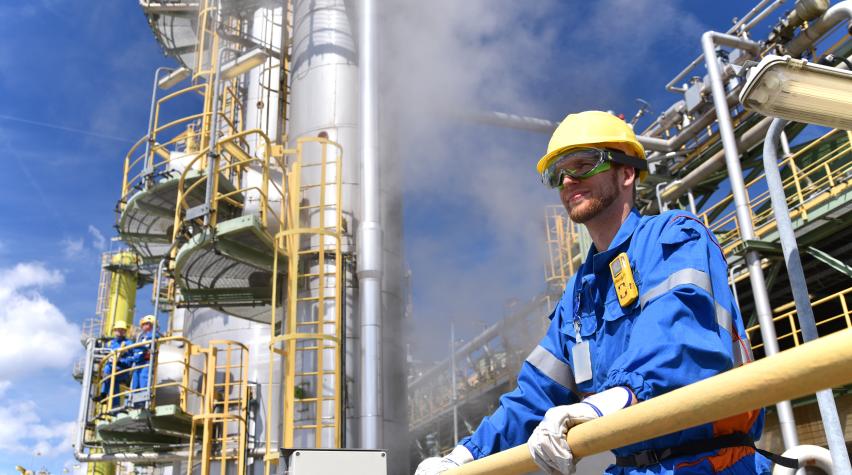
Table of Contents
- What is Chemical Engineering?
- Core Subjects in Chemical Engineering
- Beyond the Classroom: Skills & Applications
- Industries for Chemical Engineers
- Career Outlook: Is It the Right Fit for Me?
- FAQ
What is Chemical Engineering?
Chemical engineering is, at its heart, the art and science of transformation. It's where we take raw materials and, through carefully designed processes, create the products that shape our world. Think about the fuel that powers your car, the medicines that keep us healthy, the super-strong materials in your smartphone – all of these owe their existence to the ingenuity of chemical engineers.
Unlike chemists, who primarily focus on the fundamental nature of substances, chemical engineers scale up chemical reactions and design the manufacturing systems to produce these substances safely, efficiently, and on a massive scale. It's a field that bridges chemistry, physics, mathematics, and even biology to meet the needs of a modern society.
Core Subjects in Chemical Engineering
A chemical engineering degree provides a rock-solid foundation in several core subjects:
- Thermodynamics: The study of energy, heat, work, and how they relate to the properties of matter. It forms the basis for designing energy-efficient processes.
- Fluid Mechanics: Understanding how fluids behave – flowing through pipes, mixing, and reacting – is key to designing industrial processes and equipment.
- Heat and Mass Transfer: The movement of heat and molecules within systems are essential for processes like distillation, drying, and separation.
- Chemical Reaction Engineering: Controlling and optimizing chemical reactions, understanding how fast they occur, and selecting the most efficient reactors.
- Process Design and Control: Developing and simulating entire manufacturing plants, ensuring they operate safely, efficiently, and meet product specifications.
- Transport Phenomena: The unified study of momentum, heat, and mass transfer, providing a holistic framework for analyzing complex processes.
Beyond the Classroom: Skills &
Applications
A chemical engineering education doesn't just stop at the textbooks. It fosters essential skills that translate directly to real-world success:
- Problem-Solving: Chemical engineers are expert troubleshooters, analyzing complex systems to identify bottlenecks and optimize processes.
- Critical Thinking: Evaluating data, considering alternative solutions, and making informed decisions is at the heart of chemical engineering practice.
- Project Management: From conceptualization to commissioning, chemical engineers manage projects, timelines, and budgets.
- Communication: Collaboration with diverse teams requires clear technical as well as interpersonal skills.
Industries for Chemical Engineers
The scope of chemical engineering is remarkably vast. Let's explore some major industries and the exciting work chemical engineers do:
- Oil & Gas: Designing refineries, offshore platforms, and pipelines to extract and process fossil fuels.
- Pharmaceuticals: Developing, manufacturing, and ensuring the quality of life-saving medications.
- Food & Beverage: Optimizing food processing for safety, taste, and large-scale production.
- Renewable Energy: Innovating processes for biofuels, solar cell production, and energy storage solutions.
- Materials Science: Creating advanced polymers, composites, and nanomaterials with incredible properties.
- Environmental Engineering: Designing systems for pollution control, water treatment, and waste management.
Career Outlook: Is It the Right Fit for Me?
If you're intrigued by problem-solving, fascinated by how things are made on a massive scale, and want a career that directly impacts society, chemical engineering could be an excellent fit. Here's why:
- High Demand: Chemical engineers are in demand across a wide range of industries.
- Excellent Compensation: It's one of the highest-paying engineering professions.
- Diverse Opportunities: Work in research and development, manufacturing, design, or management.
- Positive Impact: Contribute to solving global challenges like clean energy and sustainable development.
FAQ:
General FAQs
-
What is chemical engineering, exactly? Chemical engineers apply principles of chemistry, biology, physics, and math to transform raw materials into usable products. They design large-scale manufacturing processes, ensuring they are safe, efficient, and environmentally sound.
-
What kind of things do chemical engineers work on? The applications are vast! Examples include: designing fuel production processes, developing new materials (like stronger plastics), creating pharmaceutical processes, ensuring food processing is safe, finding ways to reduce pollution... and so much more.
-
Is chemical engineering mostly in labs, or what? It's a mix! Lab work is part of research or testing, but also time spent designing processes on computers, out at plant sites overseeing construction, and in more standard office work for the planning/budgeting side.
-
Is it a good career for women and minorities? It should be! Historically the field has been male-dominated. There's a big push to change this, as diverse teams lead to better outcomes. Companies are actively recruiting more diverse talent.
Studying Chemical Engineering
-
How hard is it compared to other engineering majors? It's known as one of the tougher ones. Strong chemistry and math foundations are a must, and the coursework is demanding.
-
I'm bad at chemistry, is this doomed? You'll need a major shift in mindset to succeed. It's less about memorizing facts, more about applying chem principles to solve real-world, complex problems. If you like that kind of thinking, you might surprise yourself.
-
Is there a lot of programming involved? Not as much as computer engineering, but some. Modeling processes, data analysis... basic coding is becoming expected even for non-software-focused engineers.
Career FAQs
-
What's the pay like for chemical engineers? Generally very good! It's a high-demand field. Starting salaries are strong, and there's room for growth, especially if you move into management roles.
-
Are jobs only in oil and gas? That's a big sector, but far from the only one! Biomed, food manufacturing, sustainability-focused companies... the broader application of your skills grows each year.
-
Can I work internationally as a ChemE? Absolutely. Big multinationals need engineers around the globe. Being open to relocating expands your job opportunities immensely.
-
Do I need a Master's degree, or is a Bachelor's enough? A Bachelor's can get you started, but for some specializations, and to move into senior roles, a Master's is often expected.
-


